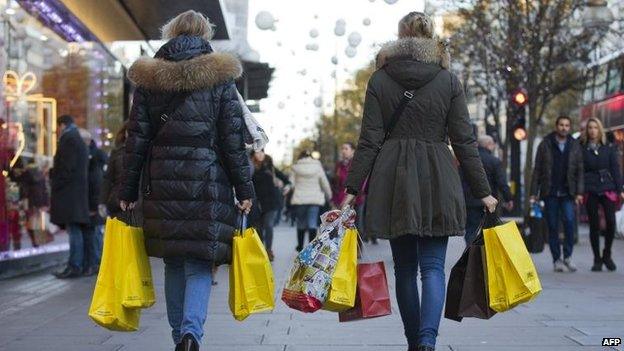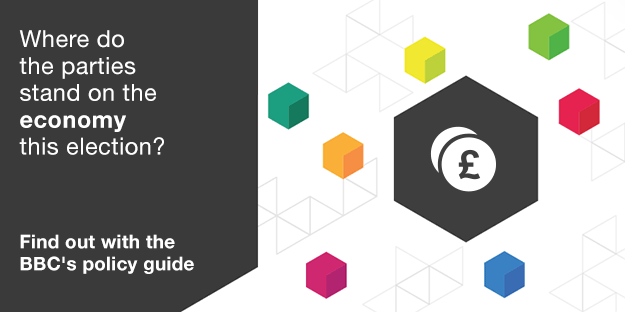Living standards back at May 2010 level
- Published
- comments

It has been a recovery much slower than in any recession since the War, but it is now reasonable to say that living standards are back to where they were at the time of the last election.
In its quarterly review of what it calls "economic well-being", the Office for National Statistics publishes a whole series of proxies of how well off we are as individuals, rather than as a nation - for the reason that it's not much use to any of us if the UK is richer, but a growing population, rising inflation or higher taxes means that per head or per person and after costs we are each of us typically poorer.
So the politically resonant number published today is that real household disposable income per head on 31 December 2014 was 0.19% higher than it was at the end of May 2010.
Now let's be clear about this. That is basically a sneeze higher. It is trivial. It's loose change at the bottom of your purse.
But it is higher.
And since real household disposable income per head is normally used as the official measure of living standards, it means that Labour will find it harder to sustain their argument that people on average have been left poorer by this government.
That said, and as the Institute for Fiscal Studies never tires of saying, a return to where we were five years ago is nothing for the Tories and Liberal Democrats to boast about. It represents the slowest recovery in modern economic history, and it included years of hardship for many.

The argument that different economic policies would have made us richer has not been exploded.
What is more, the average disguises very different experiences for people of different ages and in different parts of the country.
Broadly, and as the IFS has pointed out, those who are over 60 are much better off than they were. Those under 30 are much worse off. And the middle age group is belatedly feeling a bit better off.
Even so, the UK's economic performance, in the round and as it touches people, is definitely improving - and looks good compared with competitor nations, especially those across the Channel.
GDP or national income per capita is 4.8% above where it was at the election - although it is still 1.2% below its peak at the start of 2008, before the Great Recession and financial crisis.
And if we measure our well-being by how much we spend, then things are definitely better - since household consumption per head is 3% higher than it was in the middle of 2010.
That said, many would argue that our recovery remains unbalanced and far too dependent on consumer spending: that we are experiencing "same-as-it-ever-was" growth, of the boom-and-bust variety.
There is some grist to that pessimistic mill in today's stats.
GDP growth has been revised up by 0.2 percentage points to a chunky 2.8% for 2014, confirming the UK as the fastest growth of the big rich economies last year.
But the amount saved by households to rehabilitate their stretched finances fell last year. And in the last three months of the year, business investment fell.
Also we continue to run a record huge deficit on our trade and financial dealings with the rest of the world - which means we were shipping in debt from abroad at the rate of 5.6% of GDP in the last three months of 2014, only marginally down on the 6.1% current account deficit of the previous quarter.
So yes things feel and are a better than they were. And as the Office for Budget Responsibility recently forecast, there does appear to be momentum behind the recovery.
But the big structural flaws in the way we pay for our standard of living remain to be fixed.